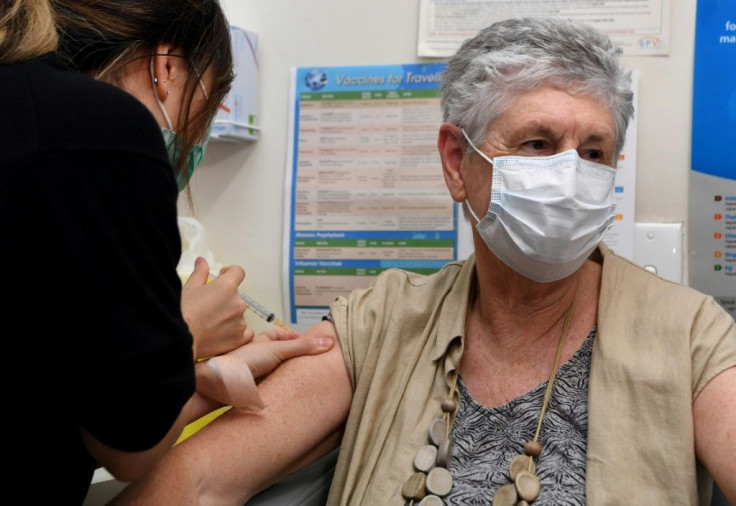COVID-19 Vaccines May Not Be Effective In 3% Of US Population: Here's Why
KEY POINTS
- COVID-19 vaccines may not work in immunocompromised Americans
- Immunosuppressive drugs, steroids "affect the body's response to the vaccine"
- Health experts say immunocompromised Americans may need boosters regularly
COVID-19 vaccines may not work fully or at all in 3% of the population in the United States, new research showed. Early data suggests that the vaccines offer a weaker response in people who take immunosuppressive drugs and, potentially, steroids.
Immunocompromised Americans -- which make about 3% to 4% of the U.S. population -- may not be protected against the novel coronavirus despite being fully vaccinated. According to the research, 15% to 80% of people with underlying medical conditions, including specific blood cancers or previously organ transplants, are generating fewer antibodies, The Washington Post reported.
“The overwhelming majority of transplant patients, even after a second dose of the vaccine, appear to have suboptimal protection — if any protection — from the vaccine, which is frightening, disappointing and a bit surprising,” Dorry Segev, a researcher at the Johns Hopkins University School of Medicine, told the Post.
During the clinical trials for the vaccines, drugmakers did not include immunocompromised participants in a rush to develop the formula. This has resulted in very limited knowledge about how people under this group react to the vaccine shots.
Various case studies also showed that some patients with pre-existing medical conditions suffered from an active COVID-19 infection for months. This led many health experts to questions whether immunocompromised people can act as incubators for the novel coronavirus to mutate.
Rochelle Walensky, director of the Centers for Disease Control and Prevention, and Dr. Anthony Fauci, White House adviser and director of the U.S. National Institute of Allergy and Infectious Diseases, cited a case where the New York variant, B.1.526, was first found in a patient suffering from advanced AIDS.
“I would just say we know that early studies actually show that these variants could emerge in a single host — in a single immunocompromised host, as well,” Walensky said during a press briefing on March 1.
Health experts are now preparing to offer potential solutions, including boosters, which the immunosuppressed may “likely” need regularly.
“I personally think that it is likely that people will need a booster. That may not be everybody, but I think that getting a booster dose and then having some periodicity to this is likely to be quite common,” Dr. Jeffrey R. Curtis, chair of the American College of Rheumatology COVID-19 Vaccine Clinical Guidance Task Force, told Healio News. “This may end up being more or less like the flu shot, where you need it if not annually, then at least with some regularity.”

© Copyright IBTimes 2024. All rights reserved.






















